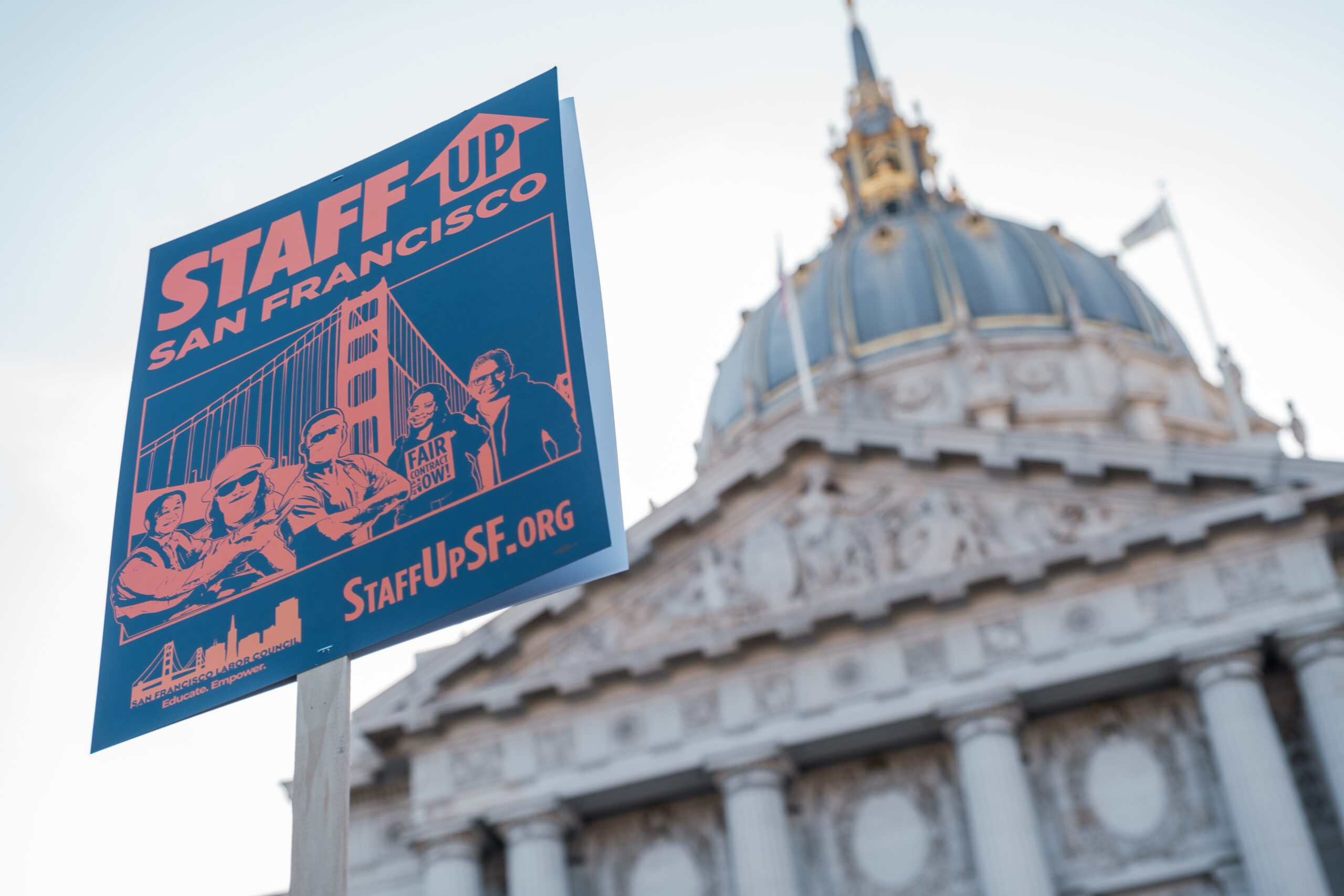San Francisco’s May budget update reveals a mixed bag of news about the city’s financial condition that includes some revenue boosts along with new costs that could hamper the city’s finances down the line.
The projections also show potential risks on the horizon, a stronger recovery in some unexpected sectors of the economy, and details on when the city believes key revenues could fully recover from the pandemic.
Here are three major takeaways from the report.
1. Higher Labor Costs, Thanks to Inflation
The city expects to close out this fiscal year in June with a balance of $252.2 million in its General Fund, which functions as the city’s main operating fund. That’s a jump of more than $120 million from the budget office’s last projection in March. Driving much of that increase are grants and other revenue for the Department of Public Health, as well as a $38.2 million boost in city tax revenues from hotel and transfer taxes.
But that good news is offset by a raft of labor contracts, negotiated between the city and the 37 unions representing city workers, currently seeking final approval. In the latest budget update, analysts said that the estimated cost of labor contracts over the next two years—i.e. compensation for city workers—was $180 million higher than they’d expected in March. In turn, the budget office dropped the city’s projected budget surplus over the next two years from $74.7 million to a mere $15 million. The surplus was previously tagged at $108.1 million back in January.
In March, analysts assumed a 3.32% increase in labor costs, an estimate tied to cost of living adjustments. But collective bargaining agreements published on a city website show wage increases of 5.25% in the upcoming fiscal year for many city workers. Continued inflation, along with a heightened need to recruit and retain workers, likely played a role in negotiations this year, according to the budget analysts.
In a letter to the Board of Supervisors, Carol Isen, San Francisco’s human resources director, requested a hearing related to the pending contracts sometime on or before June 2. Mayor London Breed is expected to unveil her citywide budget proposal by June 1.
2. Major Economic Sectors Could Take Years to Return
Updated numbers around city revenue sources helped to buoy the city’s budget projections.
Much of that was tied to property taxes: The city’s expected refunds for property tax assessments were too high, meaning the city could have more property tax revenue at its disposal. Transfer tax revenue, which comes when a major property is sold, has also ticked higher owing in part to Prop I, which raised the tax rate on larger properties.
Local sales tax revenue is projected at $174.8 million, a 20% increase over the original budget estimate, due to a general rise in consumer spending and tax revenue from vehicle and fuel purchases. However, budget analysts expect that sales tax revenue may not fully recover to pre-pandemic levels until fiscal year 2025-26.
Hotel tax revenue has also improved at a faster clip than previously expected, with total revenue for the current fiscal year projected at $142.9 million. That’s 7.8% higher than the estimate in March, with revenue making a strong post-Omicron recovery. Still, with group and convention travel lagging, hotel taxes may not fully recover until calendar year 2026, according to budget analysts.
3. Risks on the Horizon Add to Uncertainty
The budget office highlighted current issues at Laguna Honda Hospital as a potential budget risk. If the hospital fails in its effort to ensure continuing federal funding through its accreditation process, the city could stand to lose $25 million through the end of the current fiscal year and $16 million a month through the end of the next fiscal year.
The return of business tax revenue is also threatened by the “tepid pace of return to offices” and “signs of slowing growth in technology industry gross receipts.” While the full impact won’t be known until the summer, the budget office noted that 2022 tax prepayments are below expectations from previous filings.
In its March budget update, the city also raised the specter of a potential global recession kicked off by aggressive interest rate hikes and the impact of the current market downturn on the city’s pension program. Both prospects continue to be fiscal landmines in the city’s struggle to recover from the pandemic.
